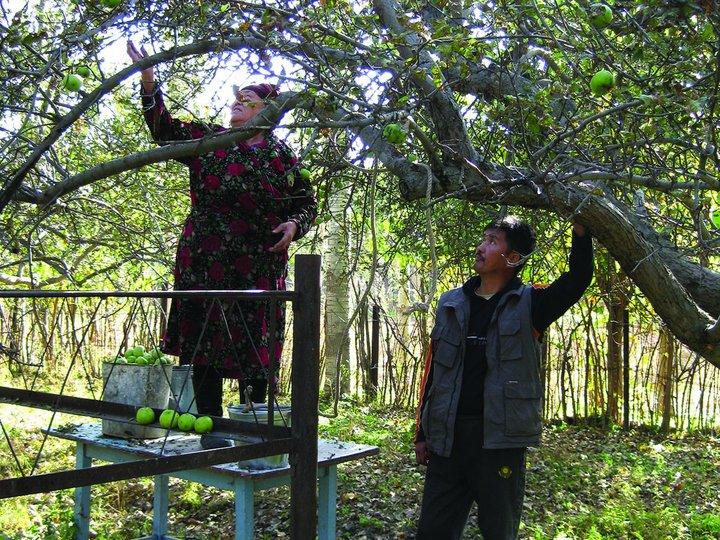Promoting fruit tree diversity in Central Asia

Apple, apricot, almond, cherry, grape, pistachio and walnut are some of the many temperate fruit trees that originated in Central Asia. Find out more in this 2013 Annual Report story.
Apple, apricot, almond, cherry, grape, pistachio and walnut are some of the many temperate fruit trees that originated in Central Asia. Yielding fruit and nuts even on poor land, these perennial trees can transform the surrounding landscape to encourage the growth of other crops. They are also culturally, nutritionally and economically vital to the region.
Bioversity International is promoting the in situ conservation (on farm and in the wild) of biodiversity in fruit tree species in Kazakhstan, Kyrgyzstan, Tajikistan, Turkmenistan and Uzbekistan. Our goal is to help conserve the wild relatives of native fruit crop species, improve farmers’ access to germplasm, land and water resources, and explore ways in which farmers who conserve genetic resources in situ can share in the benefits derived from their use.
Since this UNEP-GEF-funded project was launched in 2006, Bioversity International has been helping to strengthen the capacity of farmers in agronomic techniques, improving their access to varieties through nurseries, and pushing for benefit-sharing policies. In 2013, the project launched its website.
Over 50 fruit tree nurseries have been established to date, producing more than 1.5 million traditional variety seedlings annually of apple, grape, pomegranate and other fruit and nut trees. The project trains 300 farmers each year in soil, water and crop management practices. All of this has led to better produce, market linkages and the establishment of farmer associations that have improved local incomes and livelihoods.
One unexpected benefit was seen in Kyrgyzstan and Uzbekistan, where areas planted with traditional varieties have helped to restore degraded lands. This is now being researched further in new projects in the region.
In 2013, the Convention on Biological Diversity recognized a publication developed by Bioversity International, Guidelines: Access and benefit sharing in research projects, as an important tool to help countries and policymakers implement the Nagoya Protocol.
Gender-specific knowledge is a key aspect of work with fruit trees in Central Asia. Through gender-responsive participatory research in two villages in Kyrgyzstan, we found that women of varying ages hold significant knowledge that can contribute to biodiversity conservation. Engaging both women and men in participatory research allows for knowledge sharing within the community as well as with researchers.
This story was featured in our 2013 Annual Report.
Read the entire Annual Report 2013 here.
This work contributes to the CGIAR Research Program on Water, Land and Ecosystems, and the CGIAR Research Program on Forests, Trees and Agroforestry.
